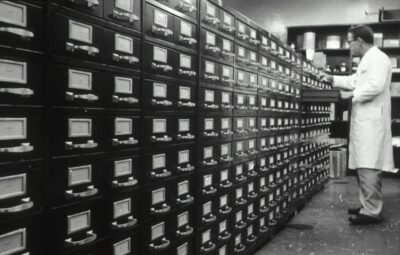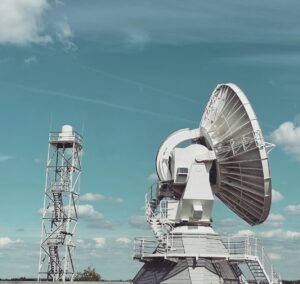Enhancing Diagnostic Capabilities with AI
One of the key benefits of integrating VSAT technology with telemedicine services is the ability to harness the power of Artificial Intelligence (AI) for enhanced diagnostic capabilities. In Saudi Arabia and the UAE, where there may be a shortage of specialized healthcare professionals in remote areas, AI-powered diagnostic tools can fill this gap by providing accurate and timely assessments of medical conditions. With VSAT-enabled connectivity, these AI algorithms can access vast databases of medical knowledge and patient data, allowing healthcare providers to make more informed decisions about diagnosis and treatment. By combining the efficiency of VSAT communication with the intelligence of AI, telemedicine services can deliver faster, more accurate diagnoses, leading to better patient outcomes and improved healthcare delivery overall.
Empowering Remote Healthcare Delivery
VSAT (Very Small Aperture Terminal) technology has emerged as a game-changer in the field of telemedicine, particularly in regions like Saudi Arabia and the UAE, where access to healthcare services in remote areas can be challenging. By leveraging satellite-based communication networks, healthcare professionals can now extend their reach beyond urban centers and deliver critical medical services to underserved communities. Whether it’s consulting with patients, sharing medical records securely, or conducting remote diagnoses, VSAT technology enables seamless communication and collaboration between healthcare providers and patients, regardless of geographical barriers. This revolutionary approach not only improves access to healthcare but also enhances the quality of medical services, ultimately saving lives and promoting well-being.
Ensuring Data Security and Privacy
As telemedicine continues to gain momentum in Saudi Arabia, the UAE, and beyond, ensuring the security and privacy of patient data is paramount. VSAT technology offers robust encryption protocols and secure communication channels, safeguarding sensitive medical information from unauthorized access and cyber threats. This high level of data security not only protects patient confidentiality but also builds trust between healthcare providers and their patients. By adhering to strict data protection standards and regulatory requirements, telemedicine platforms powered by VSAT technology can instill confidence in users and encourage greater adoption of remote healthcare services. As the demand for telemedicine grows, maintaining the integrity and security of patient data will be essential for the continued success and expansion of these services.
The Future of Healthcare: VSAT-Powered Telemedicine
In the evolving landscape of healthcare delivery, VSAT technology holds the promise of expanding access to specialized care and improving health outcomes for millions of people around the world. By overcoming the limitations of traditional infrastructure and geographical constraints, VSAT-powered telemedicine has the potential to revolutionize the way healthcare services are delivered, particularly in remote and underserved areas. As advancements in AI and remote monitoring continue to enhance the capabilities of telemedicine platforms, we can expect to see even greater strides in healthcare accessibility and quality in the years to come.
Driving Innovation and Collaboration
Moreover, the integration of VSAT technology with telemedicine is driving innovation and collaboration within the healthcare industry. By fostering partnerships between technology providers, healthcare institutions, and government agencies, VSAT-powered telemedicine initiatives are paving the way for new solutions and approaches to healthcare delivery. Whether it’s leveraging Blockchain technology for secure medical record management or harnessing Generative AI for predictive analytics, the possibilities for innovation are endless. As stakeholders across the healthcare ecosystem embrace these technological advancements, we can anticipate a future where telemedicine becomes not just a supplement to traditional care but a cornerstone of modern healthcare delivery.
Conclusion
In conclusion, VSAT technology is poised to play a transformative role in the advancement of telemedicine services, particularly in regions like Saudi Arabia and the UAE where remote access to healthcare is a pressing concern. By enabling remote consultations, enhancing diagnostic capabilities with AI, and ensuring the security of patient data, VSAT-powered telemedicine has the potential to revolutionize healthcare delivery and improve outcomes for patients worldwide. As we look to the future, it is clear that the marriage of VSAT technology and telemedicine holds immense promise for shaping the future of healthcare and creating a healthier, more connected world.
#Healthcare #Telemedicine #VSAT #AI #Blockchain #RemoteHealthcare























